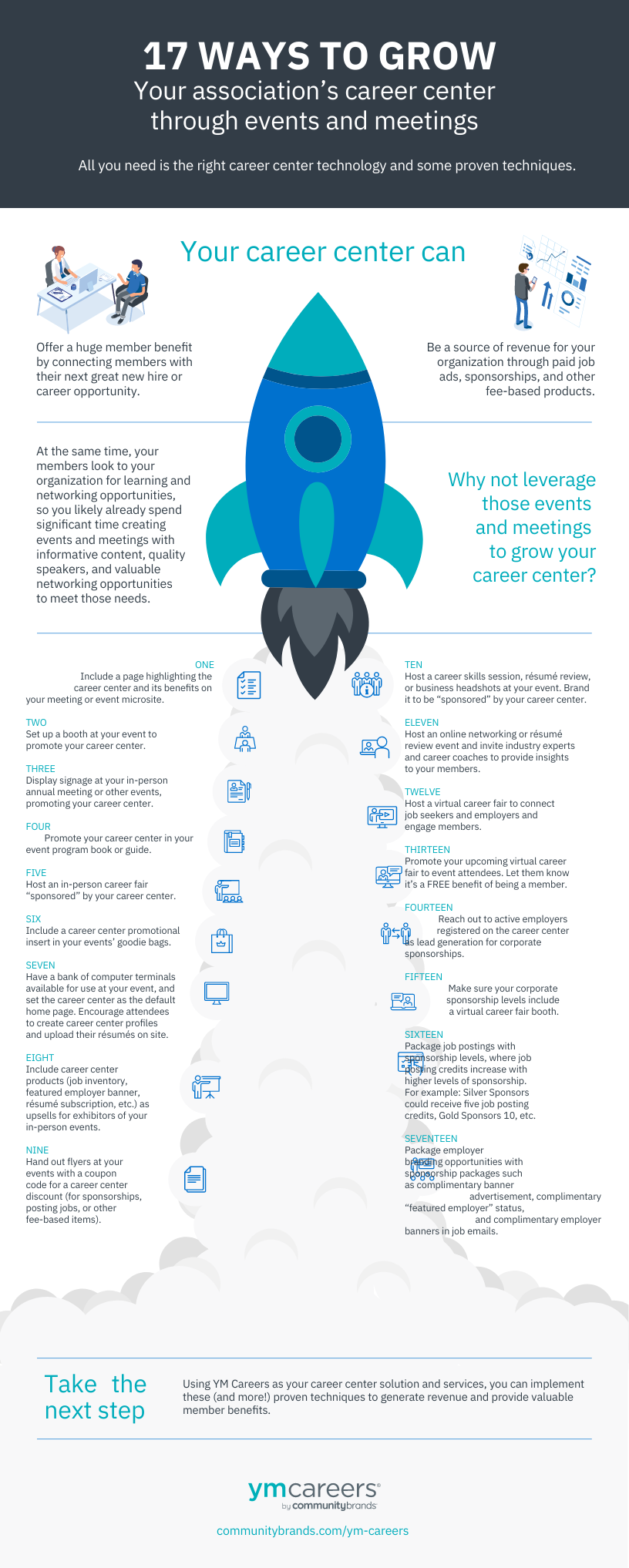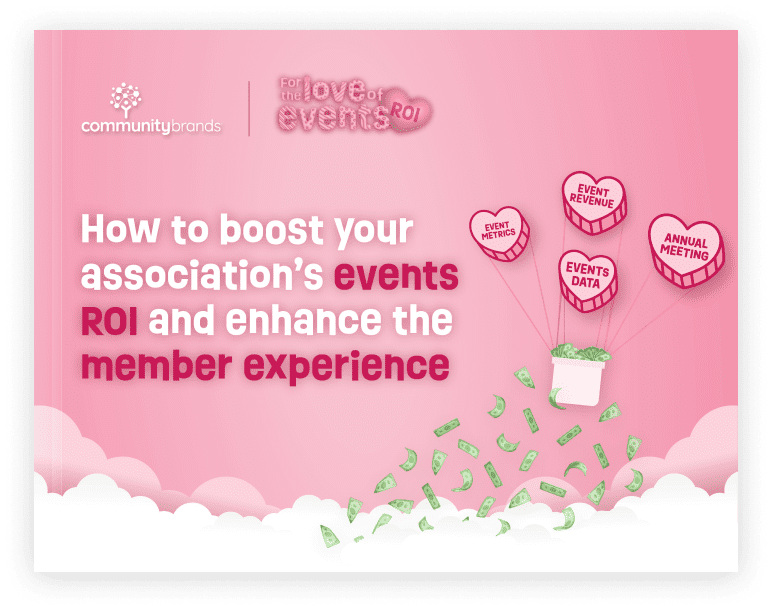Hosting career fairs, whether virtual, in-person, or hybrid, is a great way to enhance your association’s membership offerings. Career fairs provide a diverse meeting space for your members and employers in your industry to connect.
Association industry research indicates that job opportunities and career advancement are among the most valued member benefits. So, of course, you want your career event to be successful. But career fair success looks different for everyone.
There are multiple considerations when it comes to creating and executing a valuable career fair. Let’s look at five ideas to help your next career fair succeed.
Five ideas for career fair success for your association
1. Consider job demand in your industry or profession.
One of the first things to look at is the current demand in your association’s industry or profession. You are working with ebbs and flows of the industry, so always keep that in mind when hosting a career fair.
Your career fair should align with current trends. For example, is job demand projected to increase over the next three-to-five years? Then you might plan for a large event. Has hiring slowed or taken a significant dip? Then you might need to plan for a smaller event.
2. Build a well-designed career fair plan.
The YM Careers events team has fully managed more than 100 world-class career fairs for associations. Based on our expertise in planning career events for associations, here are some of the top items to think about when designing a career fair plan:
-
Resources
Think about what resources you will need to pull off a great career event. For example:
-
- What kind of resources do you currently have, and what will you need to acquire, to manage the career event smoothly?
- Who will present/speak at the event?
- Will it be a joint event with co-hosts or sponsors?
-
Scheduling
Consider your association’s calendar to find the optimal timing for your event. Ask yourself:
-
- Is there anything your association is planning in the upcoming months that could conflict with a career event?
- What other events are your association sponsoring and/or attending?
- Are there specific hiring seasons within your industry that you should plan a career event around?
-
Type of career event
Think about the various types of career events you might offer. For example:
-
- In-person career fair – Allows employers and members to meet onsite, face-to-face
- Virtual career fair – Can be more convenient for attendees and employers
- Hybrid career event – Combines in-person and virtual elements, allowing you to offer the best of both worlds and more options for members and employers
- Networking events – Allows members to connect with each other and with employers in a casual setting
- Résumé review – Provides a valuable service to members that you can offer as part of your career event or other association event
- Mentoring event – Gives members the opportunity to connect with experienced professionals who can provide career advice, encouragement, and support
- Learning event – Provides a topic-focused event that’s relevant to your industry or profession, helping you to engage members in a meaningful way that helps them grow professionally
- All-in-one career event – Combine multiple types of career events to provide greater value to members

-
Promotions
Plan out how you will market your career fair to your members and industry employers. Some things to ask yourself:
-
- How can we convey the benefits of the career fair, such as networking, career insights, job opportunities, and feedback from recruiters?
- What marketing channels can we use to promote the career fair, such as our association’s website, email communications, online community, social media, and text messages?
- Can we get more interest in the career fair by hosting it in conjunction with another association event, such as our annual conference?
3. Hiring difficulty
High-level and specialty jobs can take several recruiting avenues to fill. For example, if an employer is looking for, say, a pediatric heart surgeon or a chief of medicine, the employer is not likely to find the right candidate at a single career fair. If your industry or profession includes roles like these, be sure to keep this in mind – you might need a different approach for employers who are looking to fill these types of roles.
4. Size of job candidate pool
When it comes to the size of your career event, more attendees doesn’t always spell success. For example, think about if you’re using a filter on a job board: If you search for nurses in the United States, you are bound to see thousands of results. But if you add a filter for cardiac nurses, a location filter for Virginia, and an experience filter for a supervisor level, then you’ve got a smaller (but more targeted!) pool of candidates.
So, depending on your association’s industry or profession, you might consider hosting career fairs for specific demographics or career stages, such as students. This approach can help to make the event more valuable for employers and your members.
5. Value of conversations
The number of interactions at your career fair is not a great indicator of success if the conversations are not valuable. It’s important for employers to be able to screen quality candidates by learning more about their background and goals and seeing if they fit the position requirements. And these types of conversations tend to take longer than just a quick glance at a résumé and a few short questions. So, as you plan your career fair, do what you can to encourage and enable employers and members to have fewer but longer (and more meaningful) conversations.



